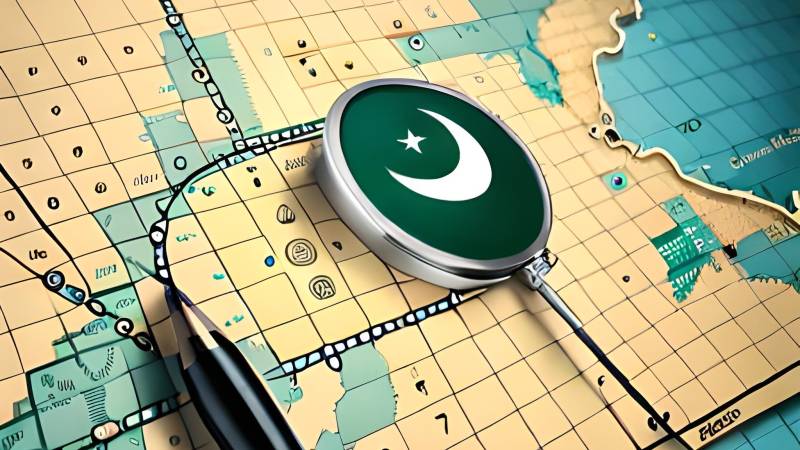
The Election Commission of Pakistan (ECP) is in a race against time to address hundreds of objections it has received regarding the fresh delimitation of constituencies in the country ahead of next year's general elections. But the body is confident it will be able to address these objections and complete the delimitation process before next week's abridged deadline to publish final constituency boundaries on November 30.
After the outgoing coalition government ratified the last census, the Digital Census 2023, which counted some 242 million Pakistanis nationwide, the ECP was bound to conduct fresh delimitations based on the new population figures for provincial and national assembly seats.
After publishing an initial list of delimited constitutencies in September, it asked political parties, independent candidates, and residents to file representation with it for changes in delimited boundaries, complete with maps of suggested boundaries.
The delimitation process was originally supposed to have been completed by December 15. However, on requests and pressure from political parties to hold elections as early as possible, the ECP revised this period by 15 days and set November 30 as the date to publish the final list of constituencies.
The top election regulatory body disclosed that during this process, it had received over 1,324 objections to the new constituency boundaries it had drawn. This is more than the delimitation of constituencies from all over the country. It has speedily disposed of objections since November 1, provinces-wise.
The commission received 1,324 objections from all provinces and Islamabad, including 672 from Punjab, 228 from Sindh, 293 from Khyber-Pakhtunkhwa, 124 from Balochistan, and seven from Islamabad.
Given the volume of objections, the ECP set up two benches to hear the representations.
The first bench started operation on November 1 and heard objections from several districts, including Islamabad, Shikarpur, Khuzdar, Sialkot, Rajanpur and others.
The second bench handled objections related to constituencies in Kurram, Attock, Jhelum, Nankana Sahib, Kohat, and Korangi districts.
Objections raised on the delimitation of various districts, including Karachi East, Malir, and Sanghar in Sindh, Mardan, Swat and Haripur in Khyber Pakhtunkhwa, Lodhran, Chakwal in Punjab, Musa Khel, Hub and Pishin in Balochistan, and others were to be addressed by electoral regulator.
Sources said that concerns remain over some of the constituencies in Sindh and Upper Punjab, but issues in most constituencies across the country have been addressed amicably.
Talking to [The Friday Times], ECP Secretary Omar Hayat Khan was confident that the ECP will be able to complete the delimitation process, complete with redressal of objections, within the timeline.
"The process was carried out transparently and finalised in due course of time," he said.
He rejected allegations of gerrymandering, noting that all processes have been completed transparently and without compromising merit.
To a question, he said the commission patiently listened to all the objections raised to address ambiguity.
Last month, the ECP chairman met with all the political parties. The main emphasis of the political parties was to hold the elections sooner rather than later. The Election Commission of Pakistan had previously announced a tentative date for the upcoming election. But in response to a query from the Supreme Court, the electoral watchdog consulted with President Arif Alvi and announced February 8 as the date for general elections.
The electoral body has recently conducted back-to-back meetings with officials of different political parties to take stock of their positions regarding elections, delimitation, and other things. The ECP recently also issued a code of conduct for parties.
Meanwhile, political parties and independent candidates have started election campaigns in their constituencies. The political bigwigs are also discussing seat adjustments, and many electables are switching loyalties by joining other political parties.

